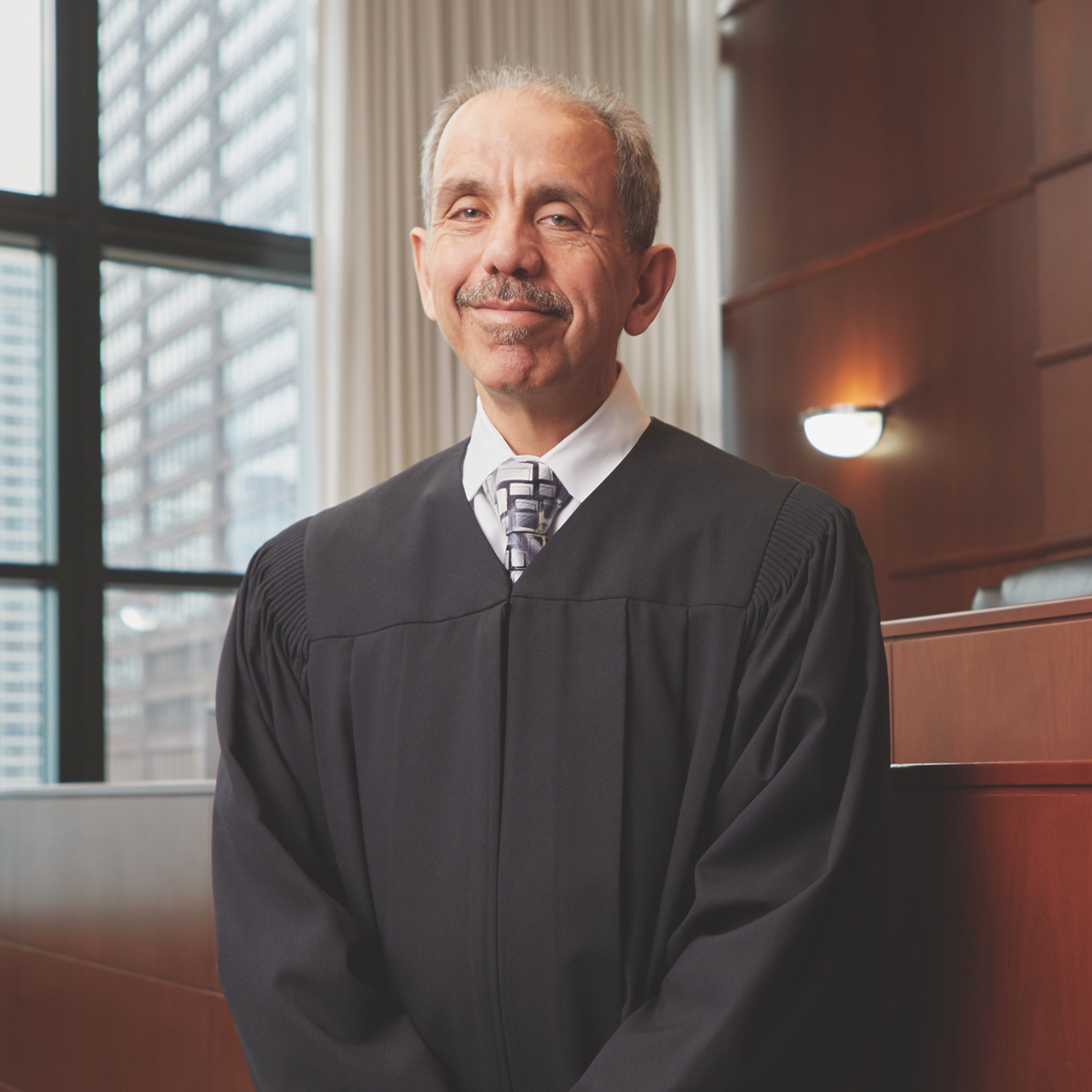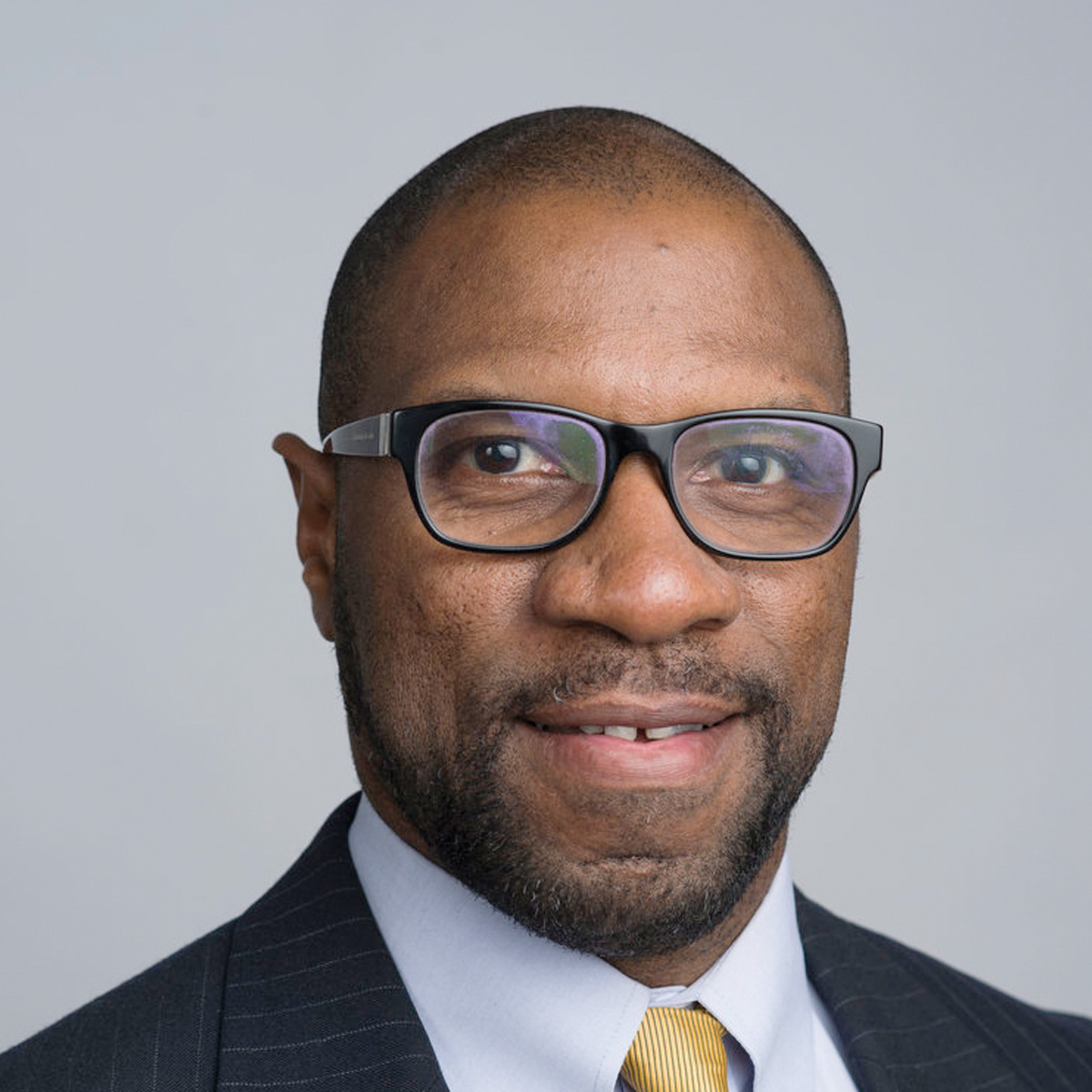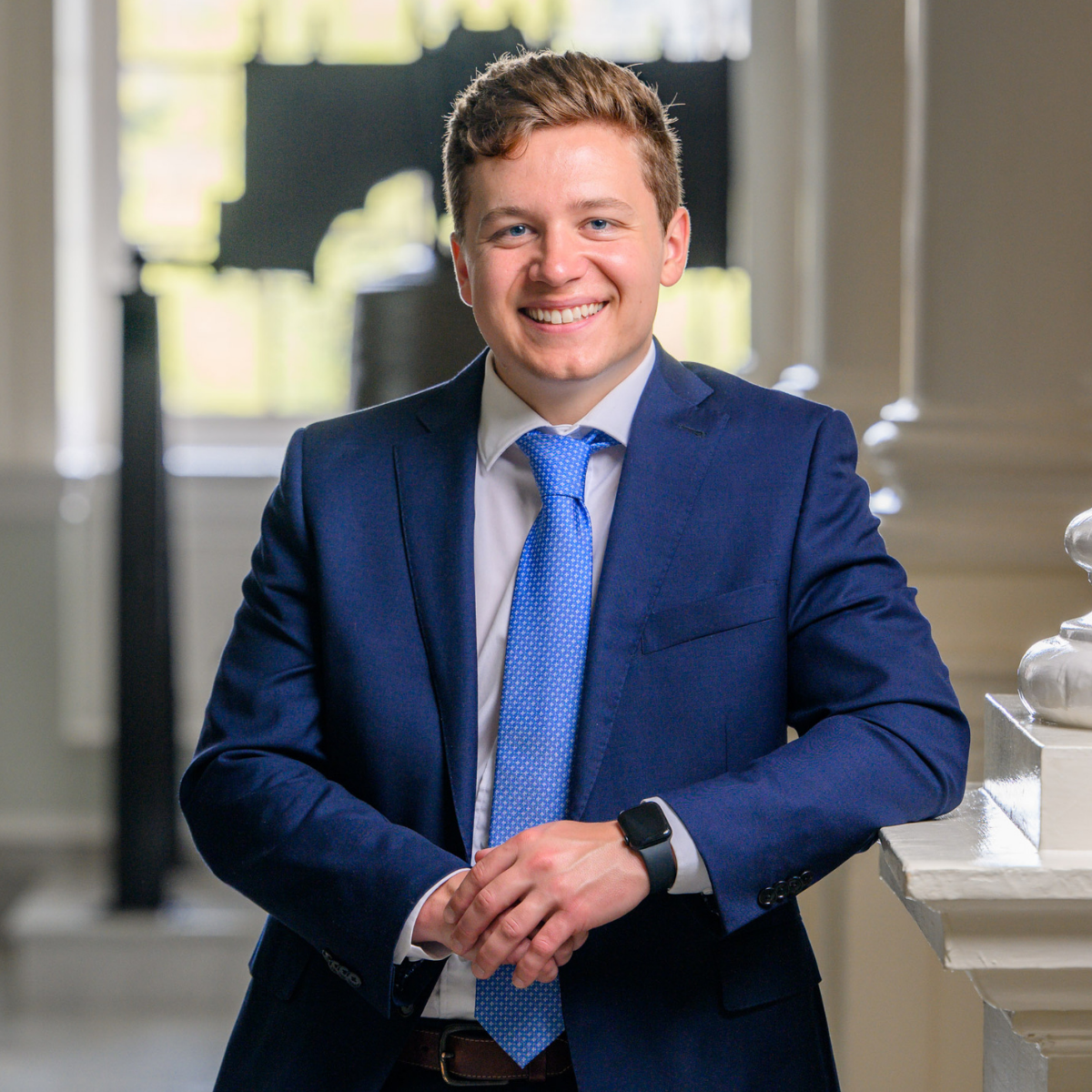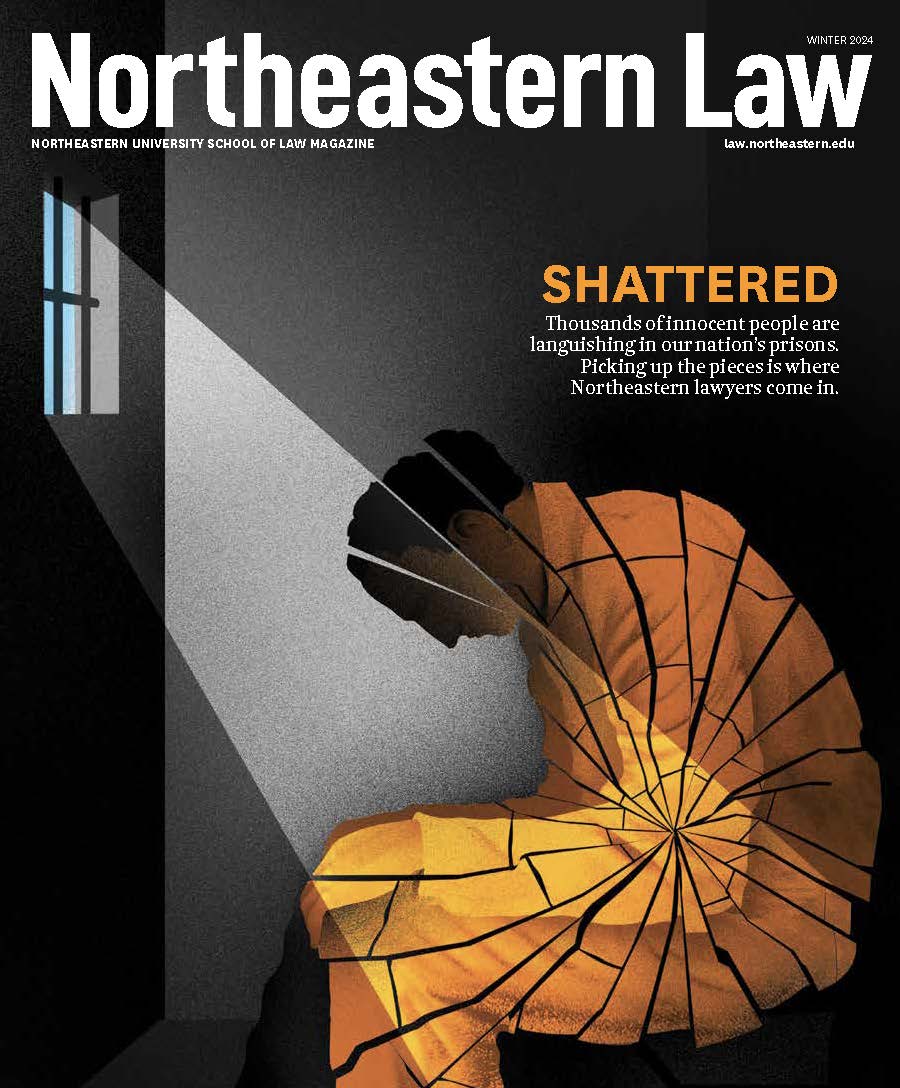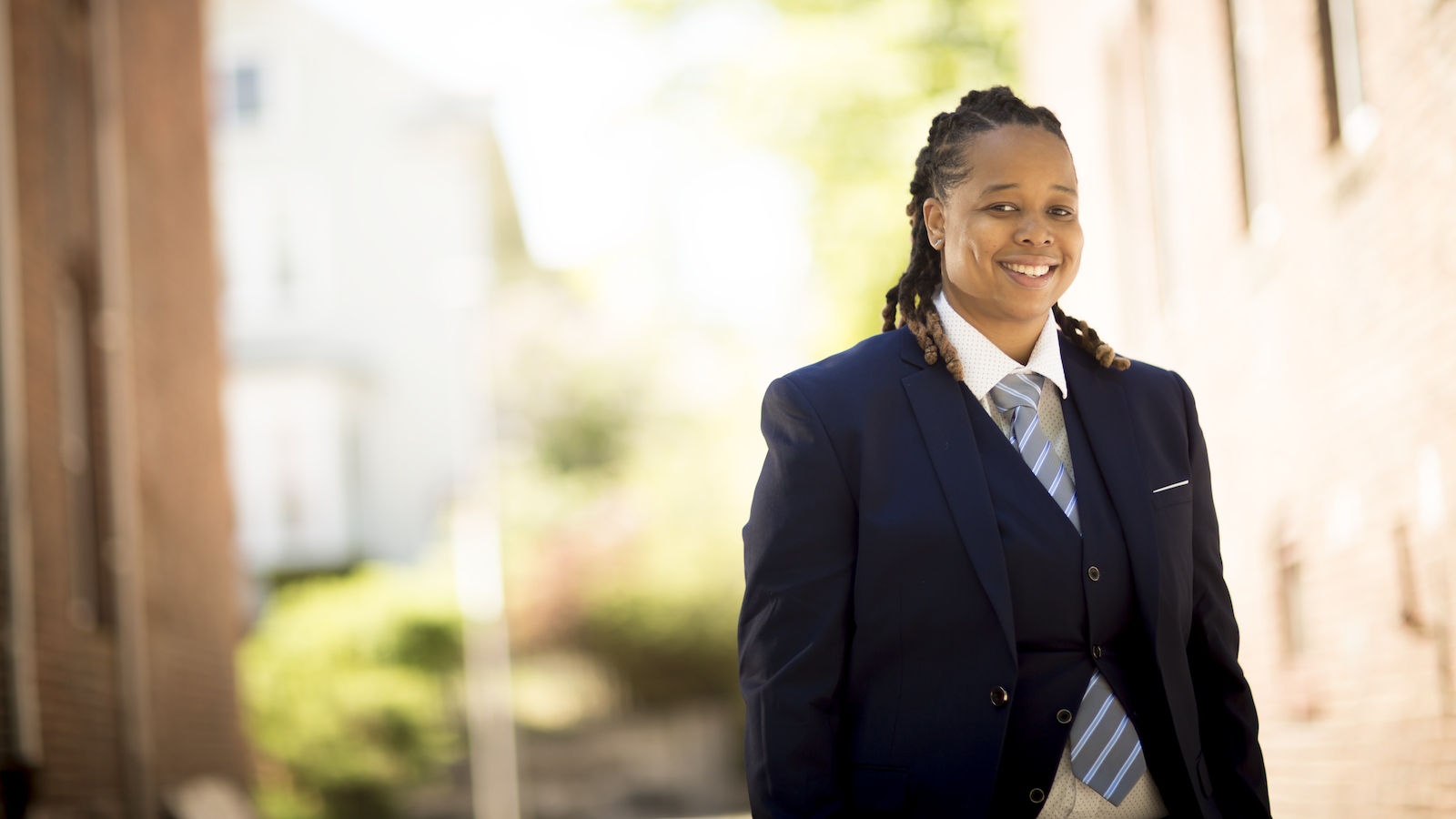
Photographs by Kathleen Dooher
Sprinting into Summer
When it comes to hiring summer associates, Big Law is changing the timeline for tapping into talent.
BY JERI ZEDER
The crazy competitive world of Big Law summer associate recruiting is getting crazier.
For interested law students, summer associate jobs after the 2L year are a rite of passage, a 10-week paid audition for a pre-graduation offer of lucrative post-graduation employment at a Big Law firm — generally defined as a large elite firm. In 2022, 97 percent of summer associates received such offers. With odds like that, students aiming for Big Law careers scramble — mightily — for these gigs.
But it’s not just the students who scramble. Big Law firms do, too. “What we have seen in recent years is a much more aggressive push by the top law firms to try to get slots in their summer classes filled much earlier than has historically been the case,” says Peter Mee ’09, a Weil, Gotshal & Manges partner with significant experience recruiting summer associates. “It almost becomes necessary for firms to shift their timelines to ensure they do not miss out on top talent.”

Peter Mee ’09
What we have seen in recent years is a much more aggressive push by the top law firms to try to get slots in their summer classes filled much earlier than has historically been the case.
As they compete for the top applicants from the top schools, these law firms have unleashed a recruiting arms race, increasingly pushing the summer associate hiring season earlier and earlier in the 1L year. The upshot is that summer associate hiring proceeds on two somewhat overlapping tracks. The traditional on-campus interviewing (OCI) track typically happens in late spring/early summer. The early recruiting track (pre-OCI, or even “pre-cruiting”) can start as early as September. The National Association for Law Placement (NALP) reports that in 2021, nearly one-quarter of summer associate offers were made during the early recruiting period — meaning that those who don’t engage early could miss out on opportunities. That’s set up some interesting dynamics, both for those Northeastern students considering Big Law and for the Center for Co-op and Career Development, which supports them. NALP Executive Director Nikia Gray says that asking 1Ls to compete for these jobs just when they are trying to acclimate to law school can interfere with their education. “It’s disruptive to their studies, and it adds an extra layer of stress. Students see some of their friends getting early offers and become concerned about whether they should be seeking job offers early in their first year too. And so it starts this panic,” Gray says. She sees particular burdens for first-generation or diverse students who may not have prior familiarity with navigating law school and the legal profession.
It’s the job of Assistant Dean Quaime Lee ’02, who oversees Northeastern Law’s Center for Co-op and Career Development, and Cynthia Tow McPherson ’05, director of the private sector at the center, to ensure that students have the support they need. “We’re working hard to create opportunities for our students to learn more about these firms sooner, to get connected with folks in these firms in a number of different ways so they can maximize their opportunities,” says Lee. He adds, “As legal recruiting in the private sector has become less fixed and, rapidly, more fluid, those students who are able to connect, engage and execute early and effectively with grit and intentionality can really build a platform for potential career rewards in this space.”
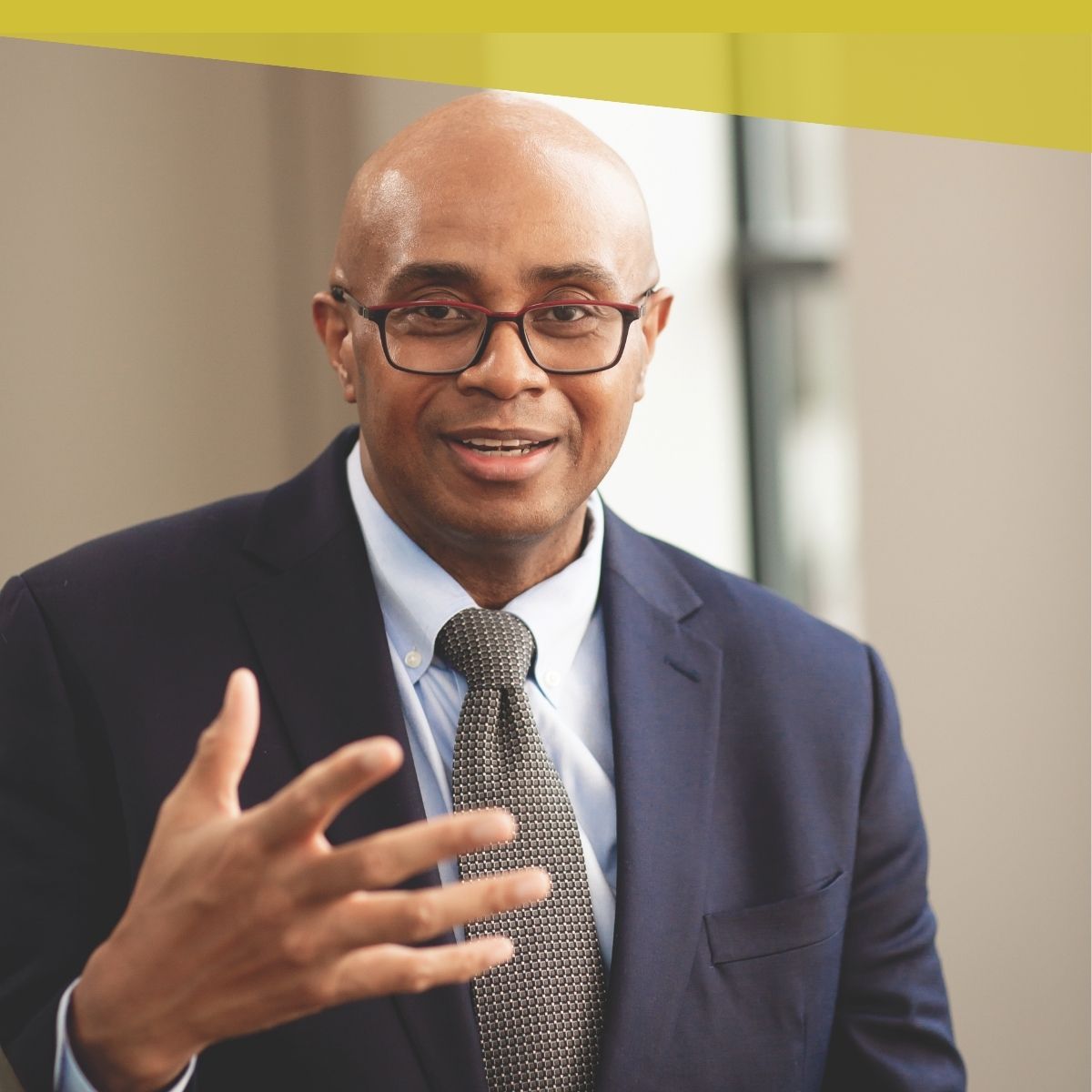
Quaime Lee ’02
We’re working hard to create opportunities for our students to learn more about these firms sooner, to get connected with folks in these firms in a number of different ways so they can maximize their opportunities.”
Navigating Uncertainty
Through early recruiting, Taylor Yi ’25 successfully landed a summer associate position with Wilson Sonsini, a firm representing tech start-ups. “I’m very excited,” she says. “It was a firm I’ve always wanted to go to, so I’m thrilled for this opportunity.” The stress of applying early was very real. “You’re trying to do well academically and survive and navigate the confusion of what 1L really is. And at the same time, you’re very concerned with this job that you’re going to have over a year later,” Yi says. The upside? “I was able to complete the process early, which brought some sense of peace,” Yi says. “There is that benefit.”

Taylor Yi ’25
You’re trying to do well academically and survive and navigate the confusion of what 1L really is. And at the same time, you’re very concerned with this job that you’re going to have over a year later.
Haili Nelson ’25 found the demands of early recruiting to be so disruptive and anxiety-inducing that she decided to prioritize her 1L studies and put off networking until the summer. But that decision itself produced anxiety. “By the time I applied in June, I was worried that my application would be easy to ignore, since other students had already cultivated connections at most firms,” Nelson says. She wound up with two summer associate offers and accepted a position at the firm where she felt a real connection with the lawyers she met: Davis Polk in New York City. “All of them were so lovely. It was such a great experience,” she says. “I’m really, really excited.”

Haili Nelson ’25
By the time I applied in June, I was worried that my application would be easy to ignore, since other students had already cultivated connections at most firms.
While Northeastern Law is a leader in producing graduates who pursue public interest careers, it is also a school where significant numbers of students aspire to, and succeed at, law firm careers. “We are among the top two law schools in terms of public interest placement for our graduating students,” says Lee. And, he adds, “We’ve also been listed on Law.com as a top 50 go-to law school based on the highest percentage of graduates going to associate jobs at the largest 100 law firms.” The number of Northeastern students landing Big Law summer associate jobs has been steeply rising: there were 64 in 2023, up from 56 in 2022 and 27 in 2018. Also of note: Over the past five years, 50 percent of Northeastern’s summer associates with Big Law have been students of color.
“We want to at least give students as many choices as we can so they can make the decision that best suits both their desires and their personal aspirations,” Lee says. “We ground the messaging as: Becoming a summer associate is one way for you to become a lawyer, and if you have the time, the bandwidth and the desire, why not try it? But don’t feel like you have to follow the race of everyone else trying to do this.”
Unlike the formal OCI process of years past, where law firms and law schools formally coordinated recruiting events together, the pre-OCI process is a kind of Wild West. “It’s not clear to us and it’s not clear to the students when law firms are hiring,” says McPherson. “We are at the whim of the market leaders.” In this new normal, the center staff must be nimble and prepared to pivot, to stay on top of what the firms are doing each year. Part of that involves priming interested students to start thinking, far earlier than they ordinarily would, about what it’s like to work in Big Law, how to network and how to put their best foot forward.
That includes Northeastern Law’s first-generation students and those from historically underrepresented communities. “We have to make really sure that our students are not disadvantaged,” says McPherson. She takes the lead in helping qualifying students apply for diversity fellowships, which are diversity, equity and inclusion jobs at large law firms that take place the summer following the 1L year. Through affinity groups like the Black Law Students Association and the Women’s Law Caucus, first-year students get peer-to-peer advice on summer associate recruiting. Northeastern also encourages students from historically marginalized communities to engage with outside organizations like the Boston Lawyers Group, which helps law offices recruit and retain attorneys of color.
Prepared to Succeed
Northeastern Law’s culture may very well give students a leg up in the summer associate sweepstakes. The no-grades, no-ranking policy tamps down unhealthy competition and encourages students to support one another. Upper-class teaching assistants routinely share hard-earned wisdom. And the co-op program serves as a proving ground. “When a student becomes a 2L summer associate, they will have had at least one 15-week legal experience prior to joining the firm,” says McPherson. “Employers consistently say to our team: One, your students know how to collaborate because you are a collaborative institution, and two, they’re professional and they know how to hit the ground running.”
In the end, most Northeastern Law students opt for public, private and NGO alternatives to Big Law summer associate employment. “We don’t ever want people to feel like this is the only way to be successful as a graduating attorney,” Lee says. “Every one of these folks is graduating with a Northeastern Law core, and whether they’re heading to Big Law, advocating in a courtroom, standing on a picket line or providing strategic advice in the boardroom of a major corporation, the ethos of not leaving people behind, remembering those who are without voices and without power and speaking up for them — you can’t unlearn that ethos,” he says. “We believe those values impact the decisions that they’re making and the advice that they’re offering to their clients in every field of law and beyond.”
About the Author
Jeri Zeder is a contributing writer.
Share
A judiciary representative of the population it serves is a fundamental necessity, says Justice Ramon Ocasio III ’88.
Your support opens doors for talented students, faculty and staff to create positive change.
Co-op Matters
As a student in the FlexJD program, a hybrid, part-time program created to meet the needs of working professionals, Shea Nugent ’26 has a full-time job as a legislative aid to Massachusetts State Representative Pete Capano and a part-time co-op with State Senator Brendan Crighton.


